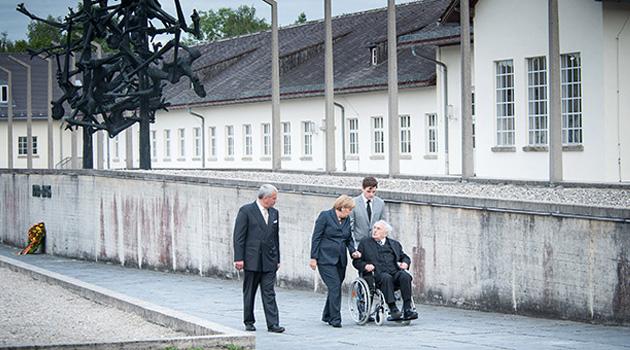Germany: Head of the state of Thuringia resigns within 24 hours after extremist party plays kingmaker role

Thuringia’s Prime Minister Thomas Kemmerich (Free Democratic Party – FDP) took office the day before yesterday by including the far-right Alternative for Germany (AfD) in the governing coalition there. He subsequently announced his resignation after just 24 hours in office.
Kemmerich gave in to relentless pressure from Federal Chancellor Angela Merkel (Christian Democratic Union – CDU) and a number of other leading politicians insisting that any cooperation with AfD is unacceptable. It is now possible the 2.2 million inhabitants of the eastern state will face early elections.
“My withdrawal is inevitable,” Minister Kemmerich told a press conference in Erfurt. The 55-year-old politician noted that the blemish of AfD support must be removed from the Thuringian Prime Minister’s office, although he had persisted in building up his cabinet while the enormous pressure to resign was underway.
Kemmerich became the head of the Thuringian government quite unexpectedly on Wednesday, beating incumbent Prime Minister Bod Ramelow (The Left) by a single vote in the Provincial Parliament. He was aided with gaining office by votes from his FDP party, the AfD and the CDU.
It was the first time the AfD has been a player in supporting a premiere in a federal state. Both the CDU and the FDP have long stressed that cooperation with the extremist AfD is out of the question.
For that reason, the reaction to the party’s progress on Wednesday was uncompromising. Merkel said that the result of the vote was unforgivable, while other politicians spoke of it as the breaking of a taboo.
Criticism also came from a number of Jewish organizations because some members of the AfD, including its Thuringian head, Björn Höcke, are notorious for their controversial statements about the Holocaust and the Nazi era. Evangelical bishops from the east also warned against cooperation with right-wing extremists.
The election was protested on Wednesday, with an online petition for the resignation of Kemmerich signed by 160,000 people as of yesterday afternoon. Kemmerich eventually could not withstand the criticism and after the intervention of his party leader, Christian Lindner, announced he would step down.
Kemmerich will clearly become the state prime minister to have spent the shortest time in office in Germany’s postwar history. The FDP, which is the weakest parliamentary party in Thuringia, now wants early elections.
A two-thirds majority of legislators is needed to dissolve the Provincial Parliament, however. It is not certain that majority can be found.
Kemmerich’s election was due to the stalemate following the October provincial elections. A majority coalition failed to form after that poll.
While the CDU and FDP could have a numerical majority – 48 seats – in the 90-member parliament if they formed a coalition with the AfD, they reject allowing that party into government. It had, therefore, been expected that Thuringia would be led by a minority government of the Greens, The Left, and the Social Democratic Party (SPD).
The effects of the Thuringian political crisis are not limited to the small state, but are also strongly felt at the headquarters of all parties of nationwide importance in Berlin. What to do next will be discussed today by the CDU leadership, whose boss, Annegret Kramp-Karrenbauer, again faces criticism.
The leadership of the FDP will also meet, where the party chair, Lindner, wants to see if he still has the support of his fellow party members. The matter will also be discussed on Saturday by the leadership of the nationwide coalition of the CDU/CSU and SPD.
